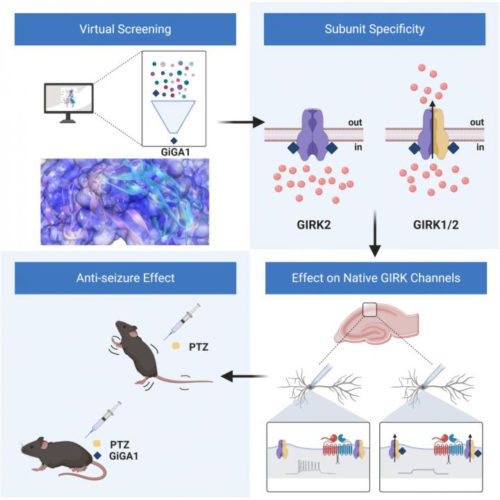Sleep myoclonus is involuntary, nonrhythmic muscle twitching that occurs either as a person falls asleep or during sleep. Sleep myoclonus is not a disease but a symptom of several different conditions. Sleep myoclonus can also happen without a known cause. In this article, we discuss what sleep myoclonus is, its causes, and how doctors treat...
Tag: <span>Anticonvulsant</span>
Novel potassium channel activator which acts as a potential anticonvulsant discovered
THE MOUNT SINAI HOSPITAL / MOUNT SINAI SCHOOL OF MEDICINE FIGURES: IDENTIFICATION OF A G PROTEIN-INDEPENDENT ACTIVATOR (GIGA1) OF GIRK CHANNELS view more CREDIT: PAUL SLESINGER, PHD Bottom Line: Potassium channels play an important role in controlling the electrical activity of neurons in the brain. We identified and characterized a new compound, called GiGA1, that...
Using a common anticonvulsant to counteract inflammation
by Tokyo University of Science Serious conditions, including sepsis, stem from inflammation in the body, and there is a lack of effective medication for sepsis. A chromosomal protein called high-mobility group box 1 (HMGB1), secreted by immune and dying cells, binds to a specific cellular receptor—receptor for advanced glycation end-products (RAGE)—and triggers the process of inflammation in the body. Through...
Anticonvulsant drugs ineffective for low back pain and can cause harm, despite increased prescribing
CANADIAN MEDICAL ASSOCIATION JOURNAL Anticonvulsant drugs are increasingly being used to treat low back pain, but a new study in CMAJ (Canadian Medical Association Journal) finds they are ineffective and can have adverse effects. “Clinically, the prescription of anticonvulsants for back and neck pain, including radicular pain in primary care, has increased by 535% in the last 10...


